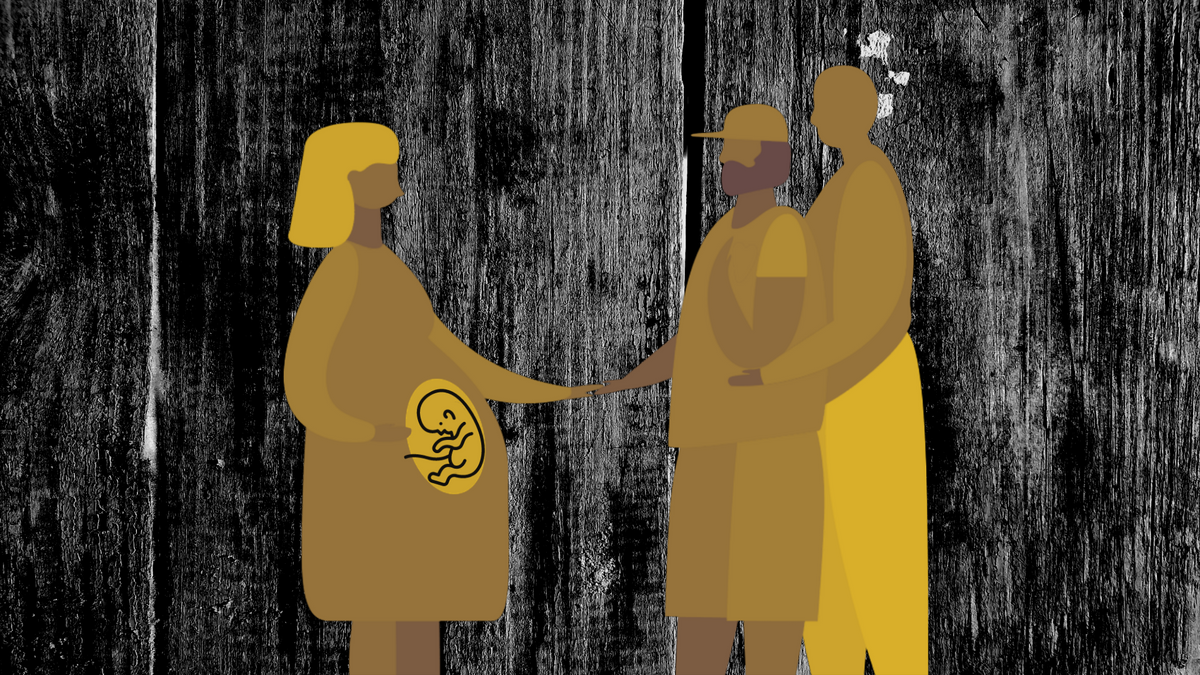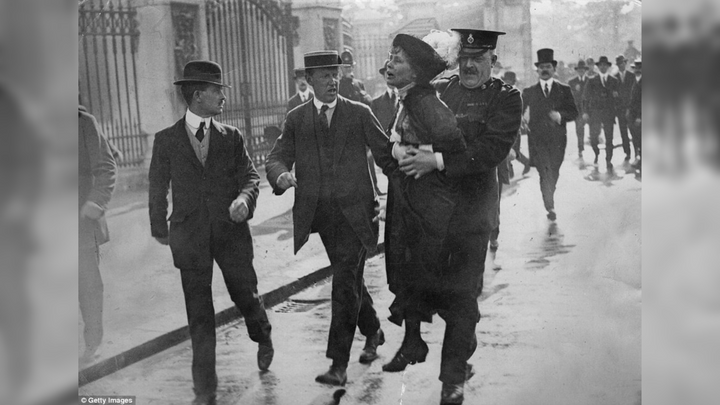Conference on Surrogacy Confirms all my Suspicions about the Practice
Any misgivings I had about criticizing the fertility industry were felled then buried by speakers at the Surrogacy: the Harms and the Humans conference.

I had long suspected something “wasn’t quite right” about surrogacy but having never experienced so much as a maternal flutter, I didn’t feel confident to take a strong stance against it. On Saturday, any misgivings I had about criticizing the fertility industry were felled then buried by speakers at the Surrogacy: the Harms and the Humans conference. From radical lesbian feminists to conservatives and Christians, a range of passionate and committed people articulated the devastating impact of surrogacy on children, mothers, families and wider society.
The conference was organized by the feminist group Object, whose director Janice Williams told me she considers surrogacy both a form of “sexual exploitation” and “child trafficking.” To Williams, the event was important because “press coverage is so sanitised, glamorised and one-sided.” It is true, over recent years a vast public relations operation has emerged to sell surrogacy.
Just as with other technologically-led innovations that undermine women’s rights, the drive to normalize surrogacy and egg donation has come wrapped in rainbows. Founder of Stop Surrogacy Now Lexi Ellingsworth revealed that when in the UK the Law Society were commissioned to undertake a consultation ahead of a proposed relaxation in the law, it was advertized almost exclusively in the gay male press. Those who will (literally) carry the burden of a legal change were ignored, and instead surrogacy was branded by the Law Commission as a matter primarily about the “right” of gay men to “build families.”
After the conference, Ellingsworth told me:
“As it was with the recent proposed reform of the Gender Recognition Act, it appeared to me that women’s voices were lacking in the design of the public consultation. We are all stakeholders in our laws and the process of reform should not be limited to those who benefit such as surrogacy agencies, family lawyers and fertility clinics…For too long now we have been fed this idea of surrogacy law being old fashioned, outdated and not aligned with modern day life. I’ve seen this same media messaging in other countries proposing the same reform of the same laws.”
And it is true that laws legalizing surrogacy, both so-called “altruistic” and commercial, are being introduced across the world. In each case the messaging is the same - that carrying a child for people who desperately want to be parents is the ultimate selfless act, and those who oppose change are backward and bigoted. Powerful patriarchal scripts which remind women that it is our duty to be self-sacrificing have been weaponized to these ends.
This was part of what persuaded Kelly, a woman with a history of trauma who was living in poverty, to make the decision to sign a contract and become a surrogate mother. In the film Big Fertility, produced by Jennifer Lahl, founder and president of The Center for Bioethics and Culture Network, Kelly recalls:
“the lady on the phone convinced me. She said they were this amazing married couple and people didn’t want to help them because they’re gay…it felt like a little bit of a guilt trip on the part of the agency.”
Kelly delivered five babies, all of which were taken after birth; she developed preeclampsia and narrowly avoided death after giving birth to twin boys. The “commissioning parents” were furious as they had paid extra to have an embryo of each sex implanted in Kelly’s womb. The two premature but healthy babies were considered a defective product.
Just as with the sex industry, poverty, trauma and bodily dissociation characterize the stories of those who become surrogate mothers. And as with prostitution, the women who agree to allow their bodies to be used often find themselves controlled- facing a loss of income if they refuse to comply with contracts that can stipulate how they give birth and what they eat. In the baby trade, slick agencies with hope-filled names, like “Brilliant Beginnings,” “Creative Family Connections” and “Growing Families” take the role of a pimp.
And the market for surrogacy is growing. It is a fact that the hundreds of thousands of people fed-through gender identity clinics will come out the other end infertile. They have been identified as a potential market by the fertility industry; indeed, the world’s most famous “trans child” Jazz Jennings, a boy whose transition was televised, has suggested that his sister could act as a surrogate.
Within the UK, trans lobby groups are pushing for sperm and eggs to be stored by the NHS ahead of mutilating hormone and surgical treatments which leave people infertile. Mermaids, a controversial UK charity who push for early, medical intervention to treat children with gender dysphoria, have begun to advocate for a change in the law around surrogacy. Mermaids’ patron Jake Graf and Stonewall advisor Hannah Graf, a married couple both of whom identify as “trans,” were the subject of a documentary called “Our Baby; a Modern Miracle” about their use of a woman’s body to grow a child. The film was billed as “a journey through prejudice and surrogacy to a birth.” The surrogacy industry not only casts mothers as factories, it makes children into products; pricey accessories to kit-out the nurseries and fulfill the fantasies of wealthy buyers like the Grafs.
There’s a temptation within current radical feminist activism to refer to upcoming issues as “the next trans” or “the next sex industry.” But the truth is all attempts to reduce women’s humanity overlap, after-all they come from the same misogynist source. Whether regarded as “holes” as in prostitution and pornography or “gestational carriers” in surrogacy, the purpose is to remind women of our duty.
Make no mistake, the fertility industry is big, powerful and it has seductive public relations. Just as with the sex trade, a target and price tag has been put on our daughters’ backs. But at a human level, we each know it is wrong to sever babies from mothers, and that humans should not be bought and sold.
The speakers at Saturday’s conference held onto this truth; they might have come from different ideological positions, but each of them rejected the idea that life can be bought. Because to do otherwise not only reduces surrogate mothers to breeding stock, it strips all of what it is to be human.
4W provides paid writing work for over 50 women in countries spanning the globe. This work is made possible thanks to our paid monthly subscribers. Join today to support our work!
Enter your email below to sign in or become a 4W member and join the conversation.
(Already did this? Try refreshing the page!)





Comments